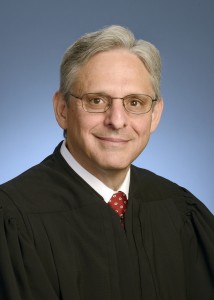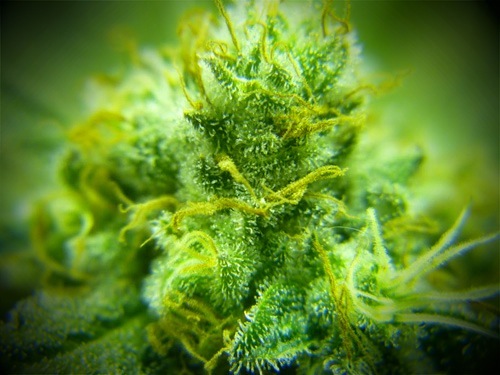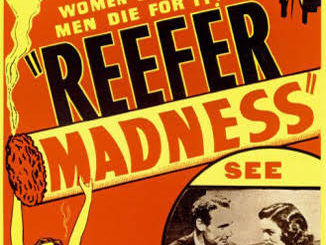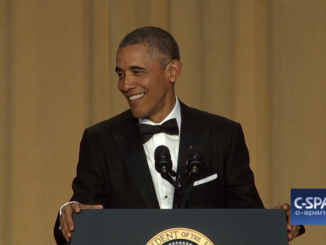
This article originally appeared at MarijuanaPolitics. I also write for those guys.
President Barack Obama today announced his long-awaited choice to fill the Supreme Court vacancy left by the death of conservative hero Antonin Scalia. D.C. Circuit Judge Merrick Garland is by most accounts a safe choice in an obstructionist congressional climate. Widely seen as a moderate liberal and effective circuit judge, he is perhaps most well known to the general public for supervising the Oklahoma City bombing and Unabomber cases as Principal Associate Deputy Attorney General in the nineties. He enjoys the support of conservatives such as Utah Senator Orrin Hatch, and respect from some progressives and court-watchers. Think Progress says Garland, a 19 year veteran of the circuit, is “unquestionably qualified to sit on the Supreme Court,” while SCOTUSblog‘s Tom Goldstein wrote back in 2010–during the search to replace retiring liberal justice John Paul Stevens–that his “record demonstrates that he is essentially the model, neutral judge.”
Balls and strikes. Remember that? We’re still figuring out exactly how that really works.
One murky area, however, is Garland’s stance on marijuana and criminal justice. We’ll get to the former in a second, but on the latter, Goldstein wrote:
“The most significant area of the law in which Judge Garland’s views obviously differ materially from those of Justice Stevens is criminal law. Judge Garland rarely votes in favor of criminal defendants’ appeals of their convictions. I identified only eight such published rulings, which should capture all the significant cases. Judge Garland did not author any of the opinions…In seven other cases, he voted to reverse the defendant’s sentence in whole or in part, or to permit the defendant to raise a argument relating to sentencing on remand…Most striking, in ten criminal cases, Judge Garland has disagreed with his more-liberal colleagues; in each, he adopted the position that was more favorable to the government or declined to reach a question on which the majority of the court had adopted a position favorable to a defendant. Because disagreement among panel members on the D.C. Circuit is relatively rare, this substantial body of cases is noteworthy.”
Now to marijuana:
In 2012 the advocacy group Americans for Safe Access (ASA) took the DEA to court in an attempt to force the rescheduling of Marijuana from a Schedule 1 substance (alongside drugs like heroin and LSD with “no currently accepted medical treatment use”). This was seen at the time as novel, with Reuters reporting “The argument is a new tack for marijuana supporters who have already won local approval for medical use in 16 states and Washington, D.C.” ASA lawyers in the case, Americans for Safe Access v Drug Enforcement Administration, argued that marijuana’s Schedule 1 status “was an inappropriate classification of marijuana and it caused harm to patients and prevented meaningful medical research.” They pointed to a veteran who had been denied VA services because of his medical use, as well as over 200 peer-reviewed studies indicating marijuana’s value as medicine.
They lost. The case was decided by a three judge panel, one of whom was Supreme Court nominee Merrick Garland. Ruling that the DEA’s scheduling was not “arbitrary and capricious,” the court said, “Because the agency’s factual findings in this case are supported by substantial evidence and because those factual findings reasonably support the agency’s final decision not to reschedule marijuana, we must uphold the agency action. DEA regulations define ‘currently accepted medical use’ to require, among other things, ‘adequate and well-controlled studies proving efficacy.'”
To be fair, Garland didn’t write the ruling; that was Jimmy Carter appointee Harry T. Edwards. But he did sign on. However, the fact that the court agreed to take on the case was a pretty big deal. One judge, George W. Bush appointee Karen LeCraft Henderson, dissented because she didn’t think that ASA even had standing.
What does this mean for cannabis and criminal justice reform activists across the country? It remains to be seen, and there’s a long road ahead. Of course, Senate Republicans could simply do what they’ve been promising to do, and not even consider the nominee. Or they could hold long, drawn-out hearings and then deny him the seat. It looks, though, like Obama has picked a nominee that will be hard for them to dismiss, and that could mean an eventual confirmation. If that happens, we’ll see exactly where Garland stands. The United States has come a long way since 2012 when it comes to marijuana policy, and many have evolved on the issue. For now, though, we can only look at existing records and those give us quite a bit to consider.




Leave a Reply